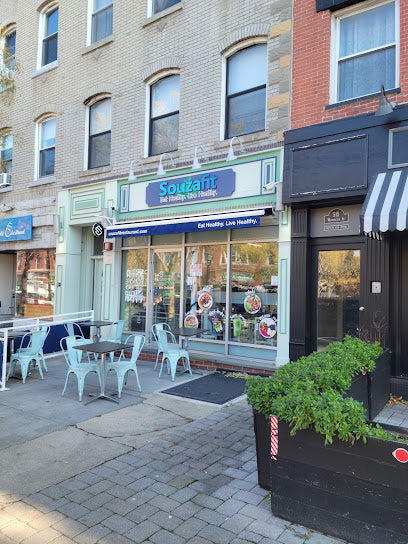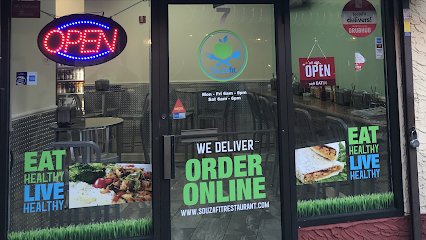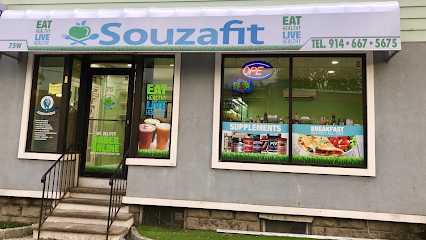When you think about improving your daily routine, you might imagine adopting more structured habits—like regular exercise, consistent sleep, and a balanced diet. But have you ever considered meal prepping as a key factor in achieving these goals? Embracing the benefits of meal prep can transform the way you handle nutrition, time management, and even budgeting. By setting aside a little time each week to prepare your meals in advance, you place yourself on a path toward healthier eating, lower stress, and a more efficient lifestyle overall.
In this guide, you’ll learn how meal prepping works, why so many people swear by it, and how you can implement a sustainable plan that suits your schedule and personal goals. You’ll also discover how meal prep not only helps you stay mindful of what you eat but gives you the power to control portion sizes, manage your time better, and save money in the process. Read on to see how you can set yourself up for success with the simple act of planning and preparing your meals ahead of time.
How Meal Prep Simplifies Your Routine
Saving You Valuable Time
One of the biggest hurdles you face in modern life is finding time for everything—from work or school obligations to family responsibilities and social events. By prepping meals in advance, you streamline your daily routine. Instead of scrambling to decide what’s for dinner each night, you already know exactly what you’ll be eating. That means fewer frantic trips to the grocery store, no last-minute takeout orders, and more free time for the things you truly enjoy.
Meal prep frees you from the daily cooking grind. You can carve out a couple of hours on a weekend or your day off to do all your cooking at once. During the week, all you have to do is heat up or plate your pre-cooked meals. This single change in your routine can open up extra space in your schedule, giving you more time to spend with loved ones, exercise, or simply relax.
Reducing Mealtime Stress
There’s a particular kind of stress that comes from trying to decide what to eat after a long, busy day. When you’re already dealing with work tasks, personal errands, or household chores, making one more decision can push you toward opting for quick, but not always nutritious, solutions. Meal prep takes the guesswork out of the equation.
Rather than wrestling with culinary choices at the end of a tiring day, you can rely on the plan you crafted earlier. The meals you’ve already cooked or portioned out are waiting, so you don’t need to worry about recipes, ingredients, or cooking time. This seemingly small shift can significantly reduce your day-to-day stress, giving you a sense of control over your schedule and diet.
Boosting Nutrition Through Planned Meals
Better Portion Control
If you’ve ever found yourself overeating because you cooked (or ordered) a massive dinner, meal prep might be the perfect solution. When you plan and portion your meals ahead of time, you set specific serving sizes that align with your nutritional goals—whether it’s weight management, muscle gain, or simply maintaining a balanced diet.
By dividing your meals into proper portions, you make it easier to resist second helpings or mindless snacking. Having your meals measured out keeps you aware of what you’re consuming, making you less likely to indulge in extra servings. Over time, this approach can help you develop a healthier relationship with food and a more consistent intake of nutrients.
Consistent Quality of Ingredients
Meal prepping encourages you to choose high-quality, nutritious ingredients. Instead of racing to the nearest fast-food joint when you’re hungry, you know you have a well-balanced meal ready to go. You can select your favorite fresh vegetables, lean proteins, whole grains, and healthy fats, then incorporate these ingredients into dishes you genuinely enjoy.
Furthermore, when you cook your own meals, you have full control over oils, spices, and seasonings. You’re able to reduce sodium intake, cut down on added sugars, and avoid additives that might be present in packaged or restaurant meals. This mindful approach to cooking not only leads to healthier meal choices but also contributes to a more positive experience with food overall.
Smart Budgeting and Savings
Cost-Effective Grocery Shopping
It’s easy to spend more money than intended when you wander grocery store aisles without a plan. Meal prep changes that. When you decide your dishes for the week, you can shop with purpose. You’ll know exactly which ingredients to buy and how much of each you need. This focused approach to grocery shopping helps prevent impulse buys and reduces the likelihood of wasting perishable foods.
Over time, sticking to a shopping list based on your meal prep strategy can lead to significant savings. You’ll find yourself throwing out less unused produce and relying less on pricey last-minute takeout. Plus, buying ingredients in larger quantities for batch cooking often proves more economical than purchasing smaller portions multiple times a week.
Cutting Down on Restaurant Bills
Dining out can be a luxury, but it’s often a source of unnecessary expense. While it’s wonderful to enjoy a special meal out occasionally, relying on restaurants or takeout for most of your weekday lunches and dinners quickly adds up. Meal prep can help you minimize these expenses by providing ready-made meals. Instead of paying restaurant prices, you’re paying grocery store prices, and often at a lower rate due to your planning.
Having a stocked fridge with pre-portioned meals also discourages unplanned trips to grab snacks or fast food. You’ll be less tempted to order in when you know there’s a tasty meal waiting for you at home. By shifting your spending from spontaneous restaurant bills to strategic grocery shopping, you direct more of your budget toward wholesome ingredients that support your overall well-being.
Meal Prep for Different Lifestyles
Tailoring Plans to Your Dietary Needs
Whether you’re following a plant-based diet, seeking lower-carb meals, or focusing on heart-healthy options, meal prep lets you control every aspect of what you eat. You can easily accommodate food preferences or dietary restrictions by choosing recipes that suit your nutritional requirements. With a bit of creativity and research, you’ll never run out of meal ideas that fit your unique lifestyle.
Because you decide your menu in advance, you have the freedom to explore new recipes and ingredients that align with your goals. By experimenting with wholesome foods that meet your needs—like high-protein snacks or fiber-rich side dishes—you can consistently nurture your body with the right nutrients. Over time, this intentional approach lays a solid foundation for sustaining long-term health gains.
Adapting to Changing Schedules
Sometimes, your life can shift unexpectedly due to a new job, family commitments, or personal pursuits. That’s why it’s crucial to make your meal prep system flexible. If you know you’ll have a hectic week ahead, preparing quick-to-cook ingredients or freezer-friendly meals can be a game-changer. During calmer weeks, you might enjoy cooking more elaborate recipes in bulk.
In essence, meal prepping is a customizable tool that adapts to your daily rhythm. You can switch up the menus, plan around seasonal produce, and experiment with different meal times or portion sizes. This flexibility ensures that, regardless of how your schedule fluctuates, you have a reliable strategy for staying on track with healthy eating.
Practical Tips for Effortless Meal Prep
Start Small and Build Up
Embarking on a new habit, like meal prep, doesn’t mean you have to transform your entire kitchen overnight. Begin by planning just a couple of meals each week. For instance, prepare your lunches for two or three days, or focus on just one meal each day—like breakfast. By starting small, you can get familiar with the process of cooking, portioning, and storing food without feeling overwhelmed.
As you grow more confident, you can gradually expand the number of meals you prepare each week. Perhaps you’ll add dinner to your meal prep plan or experiment with healthy snacks like homemade granola bars and fruit parfaits. By taking it step by step, you’ll discover what meal prep routine works best for you and your family.
Choose Recipes You Look Forward To Eating
One of the most common mistakes you can make is cooking meals that you don’t actually enjoy. Over time, forcing yourself to eat bland or repetitive dishes will diminish your motivation to continue meal prepping. To stay committed, select recipes you genuinely look forward to. If you’re a fan of hearty pasta dishes, find ways to make them healthier. If you love spicy cuisine, spice up your meals with your favorite seasonings.
Variety is also key. Change up your meal options every week or two to keep your taste buds excited. You might discover new favorite dishes along the way, which further motivates you to maintain your meal prep habit. Remember, the goal is to create a positive, sustainable lifestyle change—not to deprive yourself of the joy of eating.
Invest in Quality Containers
A quality set of storage containers might seem like a small detail, but it can significantly impact your meal prep experience. Sturdy, leak-proof containers keep your meals fresh and prevent dreaded spills in your fridge or bag. Look for containers that are BPA-free, microwave-safe, and stackable for easy storage.
Having the right containers also simplifies portion control because you can measure out exact serving sizes and store them separately. Clear containers let you see what’s inside, making it even quicker to grab your prepped meals without rummaging around the fridge. Plus, well-sealed containers help reduce food waste by keeping leftovers fresher for longer.
Keeping Yourself Motivated
Track Your Progress
If you want to maintain your meal prep momentum, take note of your progress. Whether you track meals in a journal, use an app on your phone, or take photos of your weekly meal setups, documenting your journey can help you stay accountable and motivated. Over time, you’ll see patterns in your eating habits and identify which meal prep strategies work best.
You can also record any noticeable changes—like more energy during the day, improved mood, or weight management—in a food diary or personal notes. Seeing these positive results will reinforce the value of meal prepping, making it more likely you’ll stick with it.
Celebrate Small Wins
Did you successfully prepare healthy lunches for an entire week? Treat yourself—not necessarily with food, but perhaps with something you enjoy, such as a new workout outfit or a relaxing spa day at home. By rewarding yourself for milestones, you associate meal prepping with positive outcomes. Even small gestures, like sharing your meal prep photos on social media to inspire friends, can create a sense of accomplishment.
When you celebrate small wins, you also cultivate an attitude of self-care and gratitude. Over time, these positive feelings become interwoven with the habit of meal prepping, reinforcing it as an enjoyable part of your lifestyle rather than a chore.
Moving Forward: Your Roadmap to Success
Meal prepping offers you far more than just convenience—it delivers a structured and nourishing framework that helps you thrive in multiple areas of life. By taking advantage of the benefits of meal prep, you save time, reduce stress, and gain a clearer path toward healthy eating. You also become a more conscious shopper, focusing on quality ingredients and thoughtful planning that align with your budget.
As you move forward, remember that meal prepping isn’t about rigidly following a single system. Instead, it’s about discovering what works best for you and adjusting as you go along. Experiment with new recipes, plan your grocery shopping around fresh seasonal produce, and adapt your prep style to accommodate an ever-changing schedule. Ultimately, you’re building a sustainable habit—one that empowers you to take charge of your nutrition, well-being, and time.
Now that you have the knowledge and motivation to start, consider which small step you’ll take first. Perhaps you’ll schedule an hour this weekend to prep healthy lunches or start drafting a grocery list that covers dinners for the next three days. Whatever your starting point, you’re setting yourself up for a more balanced, stress-free, and fulfilling approach to meals. The journey ahead is yours to design—so why not begin today?







